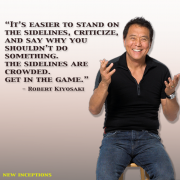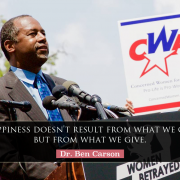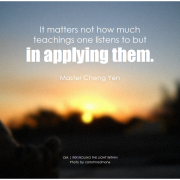Exercise Your Personal Freedom
Happy Election day! In the United States, we’re having elections today. It’s not a big one like next year’s will be, but it’s still something to take notice of. Personally, I’m close to an interesting mayor race in Indy. But for the most part, I haven’t seen too much more being advertised than that… not even in my hometown!
One thing that I believe that politicians really need to start addressing is the shrinking middle class. Here’s some data on that:
How has this happened? How has the top 1% gained 40% of all the money in the country? Well, for starters, big company jobs have been taken overseas. The jobs that are available don’t pay as much as they once did (with inflation in mind), and frankly, we have way too many people taking advantage of government run programs that were initially designed to help those in need. People honestly don’t work enough hours so that they have “benefits” form the government. (Yeah, really. As an HR professional, Maria can tell you all about it.) I’m sure I’ve just scratched the surface on what’s going on, but you get the picture.
As a nation, what are we doing to right the ship?
Not much, it seems.
That can change. Here’s how.
Two Things You Can Do To Exercise Your Personal Freedom
Elect Representation That is in Favor of Your Freedom
For the middle class to grow, two things need to happen. The first is simply the fact that politicians need to reform regulations that are currently holding our markets hostage. One such market is the housing market. After hearing that most of the cost of a house is due to the regulations on that house, I had to look it up. What I found was crazy. I came across a few articles that suggest that anywhere from 40% to 60% of the cost of a house is based on regulations. (Here’s one source for San Diego in April.) It seems that we keep electing people who add more and more regulations on various markets. How many times do we need to shoot ourselves in the foot?
We need to listen to the candidates for next year. Do they talk about taking money from group and giving it to another? Do they talk about restrictions and more control? If you hear any of those things, change the channel or run away. Whatever they’re planning on doing to the 1% (which I agree is part of the problem), it’s not going help the rest of us. The wealthy need to be incentivized to bring back jobs and wealth. Not be punished. If we try to take their wealth, they’ll simply outsource more of it. Or worse yet, move away and take their cut of the nation’s money with them.
What you can do is educate yourself on who’s running and then vote on whether that person is for big government of small government. Look at their voting record. Listen to other sources’ reviews of them. If they want smaller government, it means you have more freedom. Larger government equals less freedom for you as an individual. Exercise your personal freedom and go vote.
Get In the Game: Do Meaningful Work You Love
Having the ability to be free is just one part of the equation. The other part is actually being free.
If you’ve ever read anything by Robert Kiyosaki, you know that he has a passion for teaching people why they need to wake up about money. If anything, in the book he released with Donald Trump in 2006, he mentioned why he believes that we should be interested in being “rich”.
Basically it’s this: the government is going to go bankrupt. (It kinda has already. Several times, in fact. When we raised the debt ceiling and printed more money. Also, there’s that part about China bailing us out again and again.)
Essentially they’re saying, “If you don’t have the money to keep up with the inflation and higher tax rates, you’re going to sink lower and lower.”
Think about it for a second. People still make the same amount that we did back in 2006, but things are more expensive. This is why McDonald’s workers want higher pay. They literally can’t survive on those wages where they live.
In other books by Robert, he talks about the real reason you need to be interested in being wealthy. It simply gives you options in life.
McDonald’s was never designed to give a person a wage for the rest of their life. I’m sure the percentage of people who want to flip burgers as a career is very small. Historically, who has worked there? People in their first or second job. It was a resume builder for high school kids.
That’s actually not the norm anymore. In fact, where you used to see high school kids working, you just don’t see them anymore at all.
Where’d they go? Well, I’m not certain where they’ve all gone. But I can tell you that some of them have gotten creative! I mean, check out this video for just an example:
You can’t tell me that’s not creative! How many kids do you see with YouTube channels? Kids teaching how to do stuff (anything really) on there? Teaching technical stuff about software or hardware? Having a series about dinosaurs? Kids are figuring out the new economy before most “grown ups” are. It’s insane. I mean, even kids in my hometown are getting on the news for selling salt at school. Really? Why can’t we figure this stuff out?
The thing is, though, is that we are figuring it out. Even if it’s slowly. People are getting out of their dead end jobs and doing things they love. Be it a dream job in an organization they care deeply about or starting their own thing.
When we were growing up, we didn’t hear much about entrepreneurs and business owners. Our parents didn’t know anything about it. (Why would they? Jobs were bountiful most of their career.) In fact, I remember a joke on Home Improvement (I think that was the show) that someone was made fun of for being an entrepreneur. I think it was Tim’s brother. He said something about it and was asked “Don’t you mean, professionally unemployed?”. <Insert laugh track>
Entrepreneurs were a small silent minority. Now, we have TV shows like Shark Tank and Undercover Boss that feature heads of companies engaging with the everyday person. We’re slowly being reminded that these people, who were once “untouchables”, are actually people too.
Case in point:
So just remember, this is a free country. We can be anything we want to be, it’s just a matter of taking the right steps out of our comfort zones.
The hard part is that first step into the unknown.
Once you get on the field, you’ll be addicted.
Homework:
It’s November. 2015 is almost gone already. Was this the year that you were going to apply for that dream gig? How about start that new side business? Or even go full time with the one you’ve been working on? We’d love to hear about any of the activities you’re thinking about moving forward with.
Share below with what you’ve been putting off. We might be able to help!








